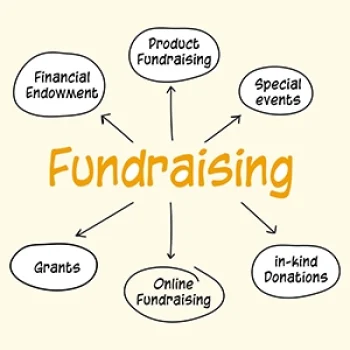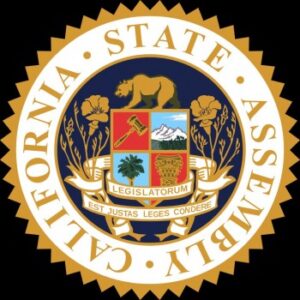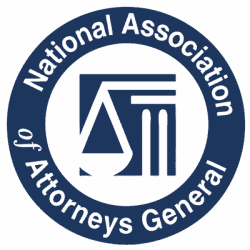In general, if a charitable organization solicits funds for charitable purposes, it must adhere to state rules that mandate registration, reporting, and disclosures by the organization or by anyone fundraising on its behalf. Forty-four states and the District of Columbia have laws that govern fundraising activities, with specific rules and requirements differing from state to state. Therefore, it’s important to review the relevant state rules before fundraising in a particular state.
What is the solicitation of funds for charitable purposes?
Charitable fundraising is the act of asking for a gift, which may be in the form of cash or non-cash items, to benefit a charitable organization or charitable purpose. Although there is no standard definition of charitable purpose among the states that regulate charitable fundraising activities, it typically encompasses benevolent, educational, philanthropic, humane, scientific, patriotic, social welfare, advocacy, public health, environmental conservation, civic, or other charitable objectives.
It’s important to understand that the act of soliciting (i.e., asking for a gift) triggers the applicable regulations. Solicitations can occur in any form where a request is made for a gift to support a charitable organization or purpose. Examples include, but are not limited to telephone, face-to-face interaction, websites, online platforms, emails, direct mail, tickets for fundraising events, purchase of goods to benefit a charitable organization, raffles, bingo, sweepstakes, auctions, television or radio ads, and social media.
Who is subject to the charitable solicitation rules?
The “persons” (which can include an individual, organization, trust, foundation, group, association, entity, partnership, corporation, society, or any combination thereof) soliciting charitable contributions can generally be classified into four types: charitable organizations, professional fundraisers, professional fundraising counsels, and commercial co-venturers.
Charitable Organizations
A charitable organization is one that is established for a charitable purpose. Whether an organization has tax-exempt status or may receive tax-deductible contributions is a completely separate question from whether it is considered to be a charitable organization under state law. So, although “charitable organizations” certainly include 501(c)(3) tax-exempt organizations recognized as charitable by the IRS, it may also include other Section 501(c) organizations, other nonprofit organizations defined by state law, or, in some states, even for-profit entities. In essence, the important consideration is whether an organization engages in the solicitation of contributions to support a charitable purpose.
In some states, depending on the amount of total contributions or the nature of their activities, charities such as religious or educational institutions, hospitals, and membership organizations may be exempt from registration. Additionally, organizations that solely solicit via the Internet (and do not engage in any targeted activity directed to any state) may not be required to register in any state—other than in the state in which they are domiciled.
There are forty-one states plus the District of Columbia that mandate charitable organizations to register if they want to request donations from residents. The registration involves submitting a state registration form, providing a copy of the organization’s IRS Form 990 (if applicable), financial statements (which may need to be audited, depending on the organization’s annual revenue), copies of contracts with fundraisers and commercial co-venturers, and a filing fee. Additional documentation that might be required during the initial registration process includes a copy of the organization’s charter, bylaws, and IRS determination letter (if the organization qualifies for tax-exempt status).
Professional Fundraisers
A professional fundraiser (PFR), also known as a professional solicitor, paid solicitor, or commercial fundraiser, is a hired individual or firm that solicits contributions on behalf of a charitable organization in exchange for compensation. They may also have custody and control over the contributions received and play a role in managing fundraising campaigns. Professional fundraisers can include telemarketers, door-to-door solicitors, and others who solicit donations in person.
In forty-three states, PFRs are required to register, post a surety bond, file contracts with their nonprofit clients, and submit campaign financial reports. Additionally, many states require professional fundraisers to disclose their status as a paid solicitor before requesting a contribution.
Professional Fundraising Counsels
A professional fundraising counsel (FRC) is a paid entity that provides planning, consultation, advice, and design of solicitation materials on behalf of a charitable organization. They do not directly make solicitations. Generally, if an FRC is compensated based on a percentage of the funds raised or has control of contributions, it will be considered a PFR. Examples of FRCs include strategic consultants, direct mail consultants, and fundraising event planners.
Currently, thirty states require FRCs to register and file contracts. Some states also require them to post bonds and file campaign financial reports.
Commercial Co-venturers
A commercial co-venturer (CCV) is a for-profit entity that doesn’t typically raise funds but instead promotes that the purchase or use of its goods or services will support a charitable organization or charitable purpose. A typical example of a CCV is a retail store that pledges to donate a percentage of the purchase price or a specific amount per unit sold to a charitable organization.
Currently, up to seven states require some combination of registration, contract filing, posting of a bond, and/or filing of a campaign financial report. Additionally, around twenty other states regulate this activity by mandating specific contract terms or point-of-sale disclosures but do not require registration or contract filing by the CCV. Some states also require the charitable organization benefiting from the CCV promotion to file and/or report the CCV contract.
What about Internet solicitations?
Most state statutes require registration for internet solicitations that reach residents of the state. However, for a state to impose its regulations on an entity’s online solicitation activities, the entity must have “minimum contacts” with that state. States recognize that enforcing registration requirements for every internet solicitation is nearly impossible. In 2001, the National Association of State Charity Officials (NASCO) issued guidelines called the Charleston Principles. These principles are not binding laws, but NASCO encourages state charity regulators to use them as practical guidelines for applying their state laws to online fundraising activities.
The principles apply to any of the regulated entities that solicit contributions via the Internet (i.e., charities, PFRs, FRCs, and CCVs) and summarize the application of state registration and reporting regimes as follows:
Entities domiciled in a state are those whose main place of business is in the state. According to the Principles, having a physical presence in the state, like a branch or regional office, can also indicate state jurisdiction.
Out-of-state entities that engage in non-internet activities requiring registration in the state (e.g., direct mail or inbound telephone solicitation) fall under state jurisdiction.
Out-of-state entities that solicit through an interactive or non-interactive website and either (a) specifically target individuals in the state or (b) receive regular contributions from the state on a ‘repeated and ongoing’ or ‘substantial” basis by the website solicitation.
The definition of ‘repeated and ongoing’ or ‘substantial’ contributions is left to individual states by the Principles. Currently, Colorado, Mississippi, and Tennessee have formally adopted numerical thresholds by regulation. In Colorado, an entity is considered to have received ‘repeated and ongoing’ or ‘substantial’ contributions if it gets at least fifty online contributions, or the lesser of $25,000 or 1% of its total contributions, in online contributions during a fiscal year. In Mississippi, an entity receives ‘repeated and ongoing’ or ‘substantial’ contributions if it receives at least twenty-five contributions or $25,000 in online contributions in a year. In Tennessee, an entity receives ‘repeated and ongoing or ‘substantial’ contributions if it receives at least one hundred contributions or $25,000 in online contributions in a year.
What are the disclosures that need to be made at the point of solicitation?
Some states require organizations to include specific disclosure statements on all written materials when soliciting donations. These disclosures must include information about how to obtain additional details about the organization and provide contact information for certain states. The requirements apply to charitable organizations and professional fundraisers.
The disclosure notice should be included on all printed solicitations, as well as written confirmations, receipts, and contribution reminders. Examples of printed solicitations typically include direct mail, fliers, or newsletter solicitations. However, written solicitations can also include emails or requests for donations on an organization’s website, such as a donate button or a link to donate.
Despite seeming burdensome, these disclosures can guide potential donors to a specific representative within the organization or to the organization’s website for more information.
- Tracy L. Boak
- Tracy L. Boak














